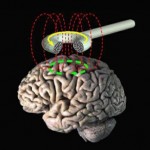Over at The Warfare is Mental, blogger cl was perplexed by a recent comment of Luke’s at Common Sense Atheism. Luke wrote:
What tools do you use when you think philosophically about God or morality or other subjects? Among other tools, you use your mind. Knowing how the mind works can help you do philosophy better, just as knowing how a camera works can make you a better photographer.
If you are an atheist, do you think it’s accurate to use the term mind? I understand that it sufficiently conveys the point in everyday conversation, but, epistemically–shouldn’t an atheist limit themselves to belief in brains only?
I often attempt to envision the positions I’d hold if I were an atheist. As regards mind, if I were an atheist, I would probably categorize it with soul as an equally non-existent entity. In my experience, many an atheist has asked, “What does it mean to say one has a soul? Where is the evidence for the soul? What type of entity is the soul?” Similarly, what does it mean to say that one has a mind? Where is the evidence for the mind? What type of entity is the mind?
I’ll take a quick crack at this question, since I’m one of those atheists who don’t use the terms brain and mind interchangeably. When I talk about the brain, I’m talking about that three pound lump of flesh which runs all autonomous bodily functions (breathing, secreting hormones, etc), which integrates various sense perceptions into a model of the physical world, and which runs the ‘software’ that we think of when we think of thinking.
I think of my ‘I’ as being in some way analogous to an algorithm. Given data (from the outside world, from imagining of alternatives, from abstract reasoning) it comes to conclusions which are put into action. Sometimes action is simple physical action (I want a book, it’s out of reach, so I get up and get it). Sometimes action is more diffuse (I know a friend is going through a touch time, so I try to find more opportunities to be helpful to them). And sometimes action is choosing to reprogram my thinking algorithm (I’ve recognized that a particular way I think is unhealthy, so I practice squashing it and work to eliminate it from my habits).
All these processes are ‘run’ on the ‘hardware’ of my brain, and, currently, there’s no way I could transfer the me-program to any other piece of hardware. But I don’t think of my me-program or any similar program as being intrinsically limited to running on a human brain. I think silicon based AI is a possibility, and it may even be possible to port existing human consciousnesses onto other substrates.
In that case, my existence as an embodied entity, running my software on a physical brain would be an important part of my history and identity, but not necessarily a constraint on who I might be in the future. Therefore, I use the word ‘brain’ to talk about the current home and tools of my mind as well as the bits of program that perform maintenance on my body. I use the word ‘mind’ to talk about everything I’d want to port over to a new piece of hardware, if I ever had the opportunity.















